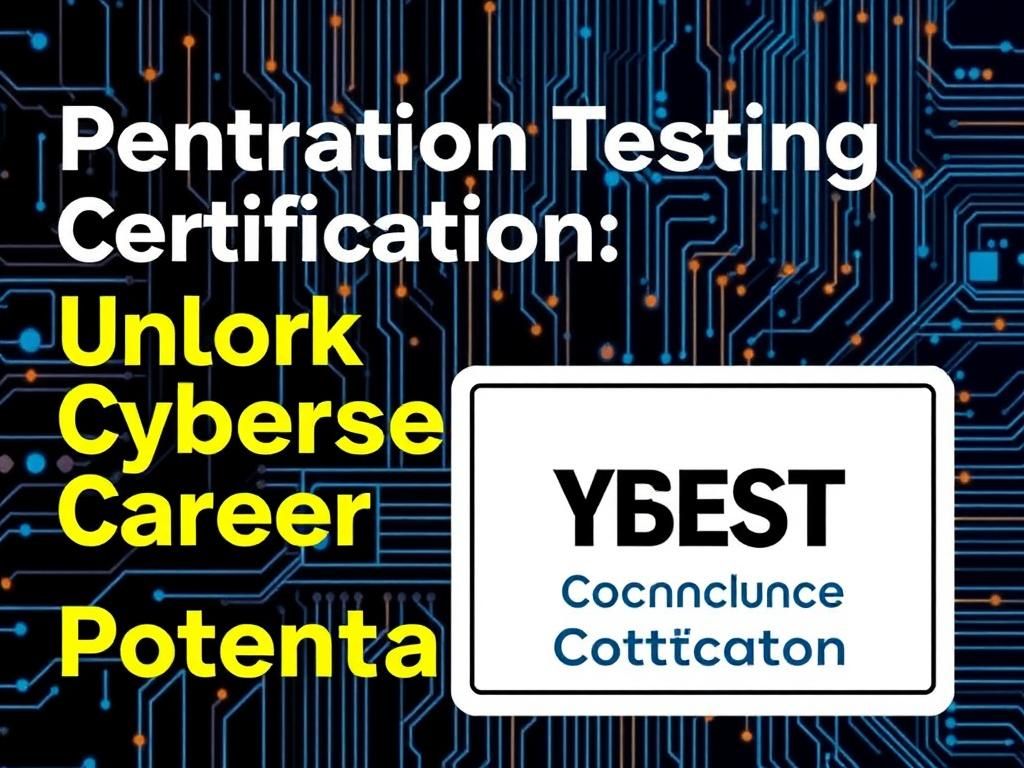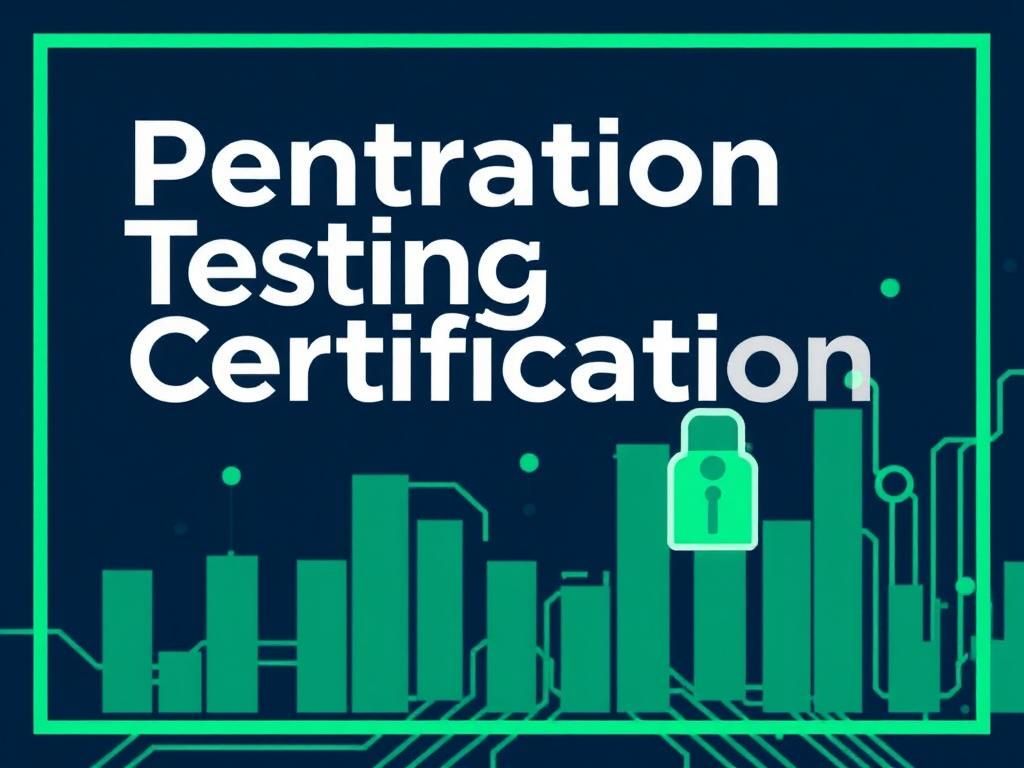Penetration Testing is a vital component in the realm of cybersecurity, acting as a simulated attack against a system, network, or web application to assess its security posture. The primary goal of penetration testing is to identify vulnerabilities that malicious hackers could exploit, allowing organizations to strengthen their defenses proactively. With the increasing frequency of security breaches and incidents, the demand for penetration testing professionals has surged, making the need for skilled practitioners more critical than ever.
Various types of penetration testing exist, including black box, white box, and grey box testing. Black box testing simulates an external attack where the tester has no prior knowledge of the system. In contrast, white box testing provides the tester with comprehensive knowledge of the system architecture, allowing for a more in-depth analysis. Grey box testing strikes a balance between the two, where the tester has limited knowledge of the system. Each method has distinct advantages, depending on the organization’s goals and testing requirements.
Despite the diverse forms of penetration testing, the critical need for it remains consistent in identifying vulnerabilities and weaknesses. Recent security incidents, including high-profile data breaches, have highlighted the importance of penetration testing as a proactive measure to safeguard sensitive information and maintain organizational integrity. As businesses increasingly transition to digital formats and rely on information systems, securing these assets is paramount.
Overview of Penetration Testing Certification
What is Penetration Testing Certification?
Penetration Testing Certification refers to formal recognition that validates an individual’s knowledge and skills in performing penetration tests and ethical hacking best practices. These certifications aim to equip cybersecurity professionals with the necessary tools and frameworks to conduct thorough assessments of an organization’s cybersecurity posture effectively. Several certification bodies provide these credentials, including the EC-Council, Offensive Security, CompTIA, and more.
Benefits of Obtaining Certification
Pursuing a penetration testing certification offers numerous advantages, including:
- Enhanced Career Opportunities: Achieving certification can open doors to job roles such as penetration tester, ethical hacker, and security consultant.
- Higher Earning Potential: Certified professionals often command higher salaries compared to their non-certified counterparts.
- Recognition and Credibility: Being certified provides validation of your skills, boosting your reputation within the cybersecurity community.
- Improved Skills: Training for certifications deepens your understanding of penetration testing methodologies and tools.
The proliferation of cyber threats underscores the importance of obtaining a penetration testing certification, as possessing these credentials can significantly enhance your career prospects and marketability.
Types of Penetration Testing Certifications
Popular Penetration Testing Certifications
Numerous certifications cater specifically to penetration testing, each providing unique focuses and target audiences.
Certified Ethical Hacker (CEH)
The CEH certification, offered by the EC-Council, is one of the most recognized credentials in the field. It covers various topics, including:
- Ethical hacking fundamentals
- Network scanning techniques
- System hacking methodologies
- Web application hacking
- Malware threats and countermeasures
**Prerequisites** include a basic understanding of networks and security concepts. Candidates must pass a challenging exam that tests their knowledge on various ethical hacking techniques.
Offensive Security Certified Professional (OSCP)
The OSCP certification, provided by Offensive Security, is renowned for its hands-on approach. Trainees are required to demonstrate their ability to exploit vulnerabilities in a controlled environment, making this certification highly sought after by employers.
Prerequisites for the OSCP include prior knowledge of penetration testing concepts and experience with Linux and networking. The exam consists of a practical test where candidates must compromise a series of target machines within a specified timeframe.
CompTIA PenTest+
CompTIA’s PenTest+ certification is designed for professionals entering the field and focuses on the knowledge required to perform penetration testing and vulnerability assessment. Key skills tested include:
- Planning and scoping
- Information gathering
- Exploitation
- Reporting
The certification is aimed at those with a foundational understanding of security, and the exam incorporates both multiple choice and performance-based questions.
GIAC Penetration Tester (GPEN)
The GPEN certification, provided by (ISC)², emphasizes the importance of thorough penetration testing and ethical hacking practices. The curriculum covers areas such as:
– Fundamental penetration testing concepts
– Technical vulnerabilities
– Tools and techniques for exploitation
**Prerequisites** include prior knowledge of networking concepts and hands-on experience in information security roles.
Others (e.g., LPT, eCPPT, etc.)
There are several other notable penetration testing certifications, including the Licensed Penetration Tester (LPT) and eLearnSecurity Certified Professional Penetration Tester (eCPPT), which focus on advanced techniques and methodologies. Each certification has its unique focus, audience, and prerequisites, making it essential for candidates to choose one that aligns with their career goals.

| Certification | Overview | Key Focus Areas | Prerequisites |
|---|---|---|---|
| CEH | Certified Ethical Hacker | Ethical hacking techniques, system hacking | Basic network security knowledge |
| OSCP | Offensive Security Certified Professional | Hands-on exploitation, demonstration of skills | Basic Linux and networking knowledge |
| CompTIA PenTest+ | CompTIA PenTest+ | Planning, scoping, exploitation | Foundational security understanding |
| GPEN | GIAC Penetration Tester | Comprehensive penetration testing | Networking and hands-on experience |
| LPT | Licensed Penetration Tester | Advanced techniques and methodologies | Experience in penetration testing |
| eCPPT | eLearnSecurity Certified Professional Penetration Tester | User-centered quality testing | Basic understanding of penetration testing |
Choosing the Right Certification
Factors to Consider
When considering which penetration testing certification to pursue, several factors should be evaluated:
- Career Goals: Determine your desired role in cybersecurity, as different certifications cater to specific paths.
- Areas of Interest: Whether you’re interested in ethical hacking, security analysis, or malware analysis, choose a certification that aligns with your interests.
- Level of Expertise: Assess your current knowledge and experience in cybersecurity to select an appropriate certification level.
- Cost and Time Investment: Evaluate the financial and time commitments associated with each certification.
Industry Recognition
Industry recognition is essential when selecting a penetration testing certification. Certifications such as CEH and OSCP are highly regarded among employers, and their recognition can play a pivotal role in securing job opportunities. Understanding how each certification is perceived in the job market can help guide your decision and ensure you select a credential that will enhance your career prospects.
Preparing for Penetration Testing Certification
Study Resources and Materials
Utilizing the right study resources is critical for successfully obtaining a penetration testing certification. Recommended resources include:
- Books: Consider reading books like “The Web Application Hacker’s Handbook” and “Metasploit: The Penetration Tester’s Guide.”
- Online Courses: Platforms like Udemy, Cybrary, and Pluralsight offer comprehensive courses on penetration testing.
- Training Programs: Many organizations provide intensive bootcamps and training programs, often with hands-on lab components.
Study Strategies
Developing effective study strategies is critical for retaining information. Here are some tips to maximize your study efficiency:
- Consistent Study Schedule: Create a manageable study schedule to ensure ample preparation time for the exam.
- Practice Tests: Take practice exams to familiarize yourself with the exam format and identify areas needing improvement.
- Simulations: Utilize lab environments to gain practical experience and reinforce theoretical knowledge.
Building a Practical Skill Set
Gaining real-world experience in penetration testing is invaluable. Engage in lab environments or Capture The Flag (CTF) platforms like Hack The Box or TryHackMe to practice your skills in realistic scenarios. Volunteering for local organizations or assisting in security assessments can also provide hands-on experience in a professional environment.
The Certification Examination Process
Overview of Exam Formats
The exam formats for penetration testing certifications vary, typically encompassing both theoretical and practical components, but each certification has its unique structure:
- Practical Exams: These tests require candidates to demonstrate their skills in real-world scenarios.
- Theoretical Exams: These assessments focus on knowledge-driven questions covering concepts and methodologies.
Candidates can expect strict time limits during exams, demanding efficient time management skills.
Registration Process
The registration process for certification exams typically involves several streamlined steps:
- Visit the official certification body’s website.
- Choose the desired certification and exam date.
- Complete the registration form and payment.
- Receive confirmation of registration and exam details.
Candidates must heed key deadlines and requirements to ensure enrollment and timely preparation for their chosen exams.
What to Expect on Exam Day
On exam day, candidates should be prepared for the logistics involved in their chosen certification. This includes:
- Exam Location: Determine whether the exam is online or in-person and arrive early to allow for check-in processes.
- Materials Needed: Review the list of required materials, such as identification and allowed resources.
- Test Anxiety: Implement strategies for managing anxiety, such as deep breathing techniques and positive affirmations.

Post-Certification Considerations
Maintaining Your Certification
Maintaining a penetration testing certification necessitates adherence to continuing education requirements. Many organizations require certified professionals to complete a certain number of continuing education credits within designated timeframes. Opportunities for professional development include attending conferences, webinars, and participating in relevant training sessions.
Career Advancement
After obtaining a penetration testing certification, various paths for career growth exist. Many certified penetration testers transition into higher roles, including security analysts, security consultants, or information security managers. The importance of gaining practical experience and pursuing further education in specific areas of interest cannot be overstated.
Conclusion
Summary of Key Points
The value of obtaining a penetration testing certification lies in its ability to validate knowledge and skills, enhancing employment prospects in the cybersecurity field. As the landscape of cyber threats evolves, so does the importance of certified professionals adept at defending organizations against these attacks.
Encouragement to Pursue Certification
Investing in a penetration testing certification is an excellent way to enhance your career and expand your knowledge. The cybersecurity field requires ongoing learning and adaptation, making certifications crucial to keeping your skills sharp and relevant.
Additional Resources
Recommended Reading
Consider diving into these popular titles related to penetration testing:
- “The Web Application Hacker’s Handbook” by Dafydd Stuttard and Marcus Pinto
- “Hacking: The Art of Exploitation” by Jon Erickson
Online Resources
Explore these online platforms for further learning opportunities:
Professional Organizations
Joining professional organizations offers networking opportunities and resources tailored for penetration testers. Consider organizations such as:
- ISACA
- (ISC)²
Frequently Asked Questions (FAQ)
What is penetration testing?
Penetration testing involves simulating attacks on a system or network to identify vulnerabilities and improve security.
Why is penetration testing certification important?
A certification validates your skills and knowledge, improving employability and enhancing career prospects in cybersecurity.
What is the difference between CEH and OSCP?
CEH focuses more on knowledge of ethical hacking methodologies, while OSCP emphasizes practical, hands-on exploitation skills.
How long does it take to prepare for a penetration testing certification?
Preparation time varies depending on prior experience and the specific certification but typically ranges from a few weeks to several months.
Are online courses sufficient for certification preparation?
Online courses can be beneficial, but it’s crucial to supplement them with practical experience and real-world application.
What resources can help with exam preparation?
Books, online courses, practice exams, and hands-on labs provide valuable resources for exam preparation.
Do I need prior experience to pursue a penetration testing certification?
Some certifications require foundational knowledge or prior experience, while others are designed for beginners.
How often do I need to renew my certification?
Certification renewal requirements vary by certifying body, with some necessitating continuing education credits every few years.
Can I take certification exams online?
Many certification exams now offer online options, allowing for flexibility and convenience.
What types of jobs can I pursue with a penetration testing certification?
Typical roles include penetration tester, ethical hacker, security consultant, and security analyst.


